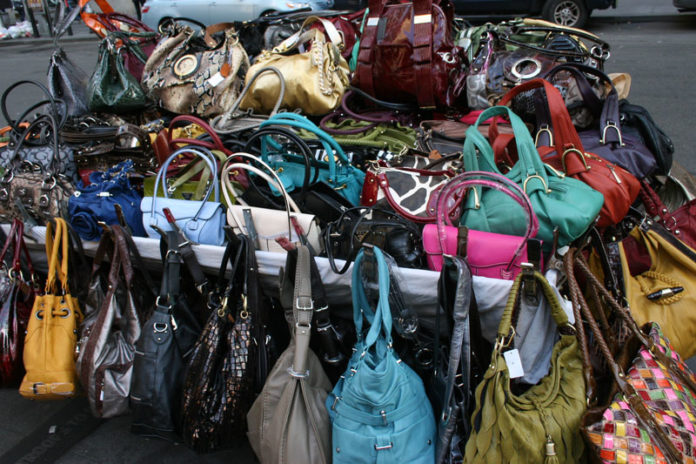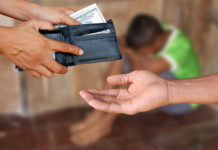While hordes of illegal immigrants, drugs and criminal elements slip into the United States through the porous Mexican border, the government agency that’s failing miserably to secure the area celebrates an “aggressive enforcement” program that confiscates imitation name-brand handbags, sunglasses, apparel and jewelry.
The Department of Homeland Security (DHS) agency, Customs and Border Protection (CPB), charged with keeping terrorists and their weapons out of the U.S. is patting itself on the back this month for tackling pirated goods. CBP is the frontline agency responsible for keeping the nation safe by securing ports of entry from unauthorized foreign nationals and seizing illicit drugs or threatening materials. With a workforce of about 60,000 the agency is nevertheless overwhelmed in the increasingly violent, 2,000-mile southern border region.
Criminals, Islamic terrorists, illegal aliens and tons of narcotics slip through CBP—which includes the Border Patrol—annually but the agency is on its game when it comes to those who try to sell fake Ray Bans and Gucci purses in the U.S. Americans can sleep soundly now. In 2014 CBP made $1.2 billion in seizures of counterfeit products. This includes footwear, electronics, toys, and other accessories. It’s the result of “an aggressive enforcement program to protect the United States from counterfeit and pirated goods,” according to an agency announcement with a detailed report attached to it. This includes around $375 million in imitation designer jewelry, $1.6 million in counterfeit sunglasses and more than $1 million in fake soccer club apparel.
Most of the goods come from China, according to CBP Commissioner R Gil Kerlikowske, who claims that “protecting intellectual property rights is a critical part of CBP’s trade enforcement mission and critical to protecting American consumers.” He explained how strong partnerships with other federal agencies and frontline interceptions of cargo at America’s ports of entry produced more than 23,000 seizures of fake products worth an estimated $1.2 billion. Had the pirated merchandise made it through it “could have cheated or threatened the health of American consumers,” according to Commissioner Kerlikowske, who failed to provide further details on how the public could possibly be threatened or hurt by fake designer merchandise. However, the director of Immigration and Customs Enforcement (ICE), Sara Saldaña, assured that “counterfeiting is a crime of global proportions.”
Serious as this may sound to some, others might consider it a better use of CPB’s resources to guard against illegal immigrants, drugs and other threats along the famously crime-infested Mexican border. Just this week a Washington D.C. newspaper reports that more than 3,000 unaccompanied illegal immigrant children—mostly from Central America—surged across the southern border last month alone. It’s not just kids making it in. Illegal alien adults are also crossing the border and the Obama administration is allowing them to stay as “family units.” Even the youths who have entered the U.S. recently imported serious diseases—including swine flu, dengue fever and tuberculosis—and a number of them have violent histories and ties to deadly gangs.
For years Judicial Watch has reported on the criminal elements that cross into the country through Mexico and later commit atrocious crimes in the U.S. This includes murderous drunk-drivers, child abusers and violent street gangs with operations throughout the nation. Just a few weeks ago the Center for Immigration Studies (CIS) published an alarming report on these immigrant gangs, which present a significant public safety threat and have taken over entire areas of major states like California, Texas and Florida.
A few years ago JW wrote about a federal court case that outlines how Mexican drug cartels have teamed up with violent street gangs to operate inside the U.S. The case involved dozens of members of the Barrio Azteca gang charged with operating a massive drug-trafficking and money-laundering enterprise. Charges ranged from murder, racketeering, money-laundering, obstruction of justice and drug offenses. According to documents obtained by JW from the Department of Justice (DOJ) members and associates of the Barrio Azteca for years engaged in a host of criminal activity, including kidnapping, extortion and drug trafficking. The gang makes money by importing heroin, cocaine and marijuana into the United States from Mexico, according to the DOJ. That means these criminal enterprises are crossing back and forth through a porous border while the agency responsible for guarding it is preoccupied busting Chinese makers of fake designer handbags and sunglasses.






























